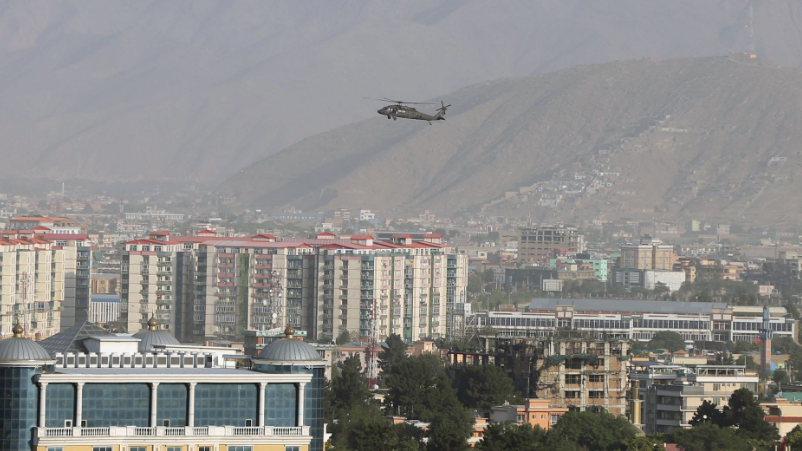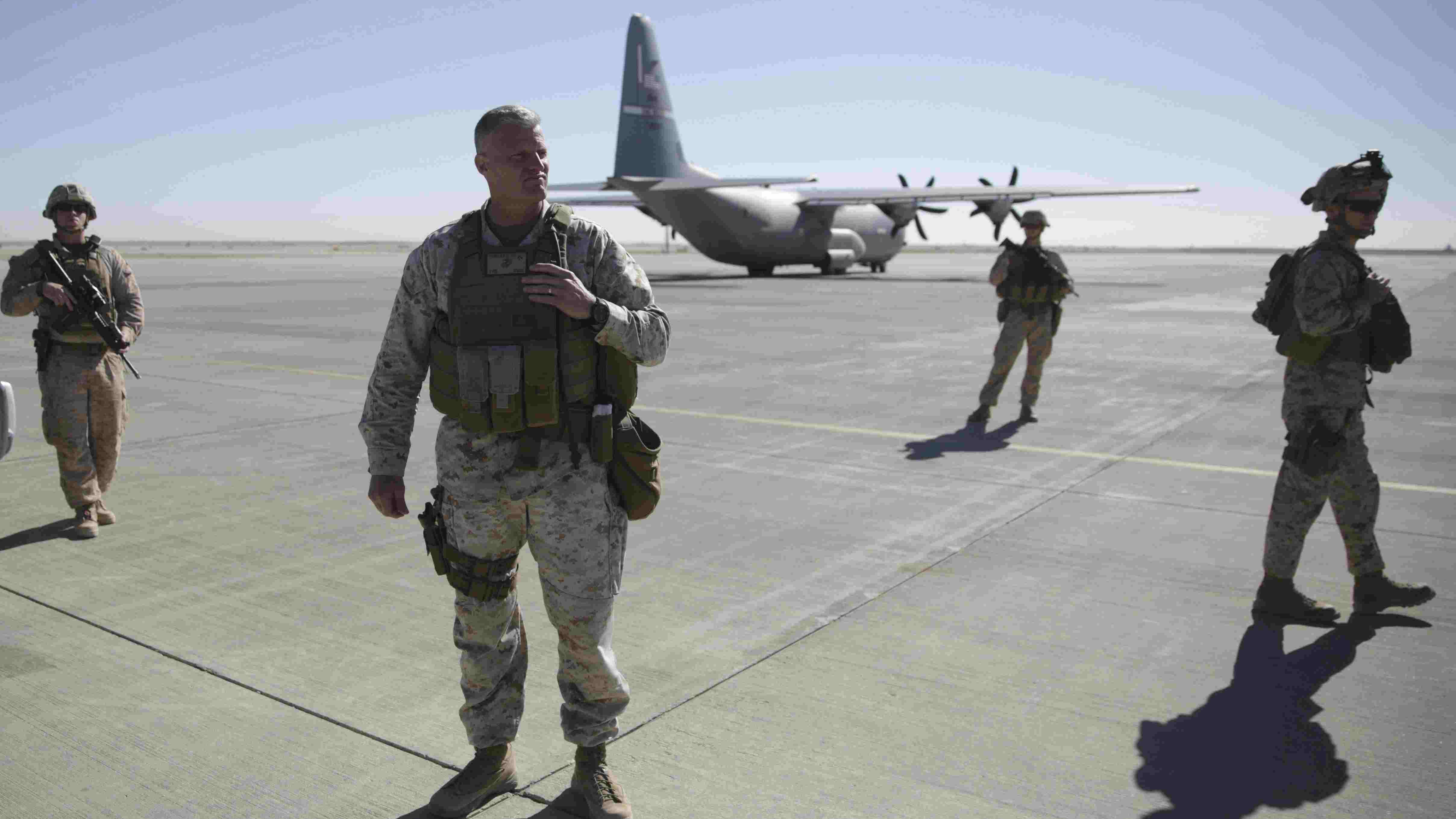
A NATO helicopter flies over the city of Kabul, Afghanistan, June 29, 2020. /Reuters
A NATO helicopter flies over the city of Kabul, Afghanistan, June 29, 2020. /Reuters
Editor's note: Shokrullah Amiri is a consultant and a former head of private sector development in the office of the president of Afghanistan. The article reflects the author's opinions and not necessarily those of CGTN.
In July, the U.S.-NATO troops handed over Bagram Airbase to Afghan security forces. For good and ill, this is the visible mark of their departure from Afghanistan. Without saying goodbye to Afghan troops, maybe a good example of the messy end of their mission in Afghanistan.
As the fast-tracked U.S.-NATO departure completes on August 31, the militants have expanded their control through much of northern Afghanistan in recent weeks leaving provincial capitals to mostly be reinforced and resupplied by air now.
The terms of the U.S.-Turkey deal on Afghanistan
The NATO Summit Communique of June 14, 2021 supported the likelihood of a handover to Turkey when it mentioned funding would be made available for that purpose. Turkish President Recep Tayyip Erdogan said the U.S. and Turkey had agreed on the scope of a mission to secure the Kabul airport.
According to Turkish media, one of the conditions is that the U.S. will provide intelligence, military, and financial support and that Turkey will send more troops to Afghanistan if needed. However, Turkey will not engage in any operations outside the Kabul airport premises.
The reactions so far
Despite several Taliban warnings, Ankara does not seem to be rolling back its daring strategy on Afghanistan. Seeking negotiation, President Erdogan on Monday said that the Taliban should "end the occupation of their brothers' soil" and played down Taliban warnings (Reuters). And the debate over the implications of expanding the follow-up role for Turkey has intensified.
The only country that is predominantly Muslim and has soldiers in the U.S.-led coalition has long understood the benefits of an extended Turkish presence in Afghanistan. The transfer of operations at Kabul Airport to the Turkish military may provide an excellent opportunity for that long-term goal.
The Taliban recently warned Ankara against the extension of its military presence in Afghanistan when U.S.-NATO troops leave the country. The group said in a statement, days after Ankara agreed with Washington to provide security for Kabul airport, that the plan was ill-advised, and a violation of its sovereignty and territorial integrity.
The government of Afghanistan has hailed the extension of the mission. The Afghan Foreign Minister, Haneef Atmar, told TRT World that "we welcome it and support it. Fortifying the airport would encourage many countries to maintain their diplomatic boots in Afghanistan." The move appears to give the U.S. and allies a diplomatic presence in Afghanistan to safeguard their interest and deny U.S. rivals who are eyeing Afghanistan.

U.S. marines at the Shorab military camp in Helmand province, Afghanistan, January 15, 2018. /AP
U.S. marines at the Shorab military camp in Helmand province, Afghanistan, January 15, 2018. /AP
Possible scenarios
The army of over 300,000 Afghans, trained by NATO for 20 years, are now fighting more than 60,000 Taliban fighters in Afghanistan. The Afghan government is aware of the recent game-changing result of interventions achieved by Turkey in Azerbaijan and Libya, and hopes their presence in Afghanistan will bring a positive outcome and save the government from the verge of collapse.
Turkey already has the military experience and capability to provide security at Kabul Airport, which one Bloomberg columnist described as a risky Afghan mission that no one else wants. The Turkish military has been running Hamid Karzai Airport for six years and has gained considerable experience in this area.
Although the Afghan government will welcome it, the Taliban will doubt the future role of neutrality and mediation Turkey traditionally had in Afghanistan. Still, Turkey has an exceptional diplomatic toolkit that acts as a suitable mediator between conflict zones when needed. It has positive relations with Pakistan, Qatar, and Iran, with no conflict of interest with Kabul, and its role in the peace process of Afghanistan would bring optimism.
Afghans believe that most of the countries involved in Afghanistan maintain their interests by having ties to tribes; in practice, Turkey has proven that its policy towards Afghanistan has been based on neutrality and civilian assistance.
On a soft-power level, Turkey is trying to reclaim a leadership role in the Muslim world, and Afghans, seeking escape from their predicament, and with pride in their Muslim heritage, are included in that effort.
Turkey does not plan to jump deep into Afghanistan. The intervention seems limited in scope, and importantly, has a policy narrative that prioritizes the consolidation of political stability and mediation. This contrasts with the British at the height of their imperial power, the Soviet invasion of Afghanistan, and the U.S.-NATO use of force in the war in Afghanistan.
Additionally, it would be a safe bet to assume that there are already efforts underway between Turkish officials and the Taliban to reach an agreement on the parameters of Turkish deployments to avoid a direct exchange of fire.
The growing influence of Turkey in the region might intersect with one of the major arteries of the Belt and Road Initiative in Afghanistan. It is a challenging mission for Turkish forces and, regardless of its outcomes, is one of the few encouraging bits of news developing of late from Afghanistan.
(If you want to contribute and have specific expertise, please contact us at opinions@cgtn.com.)

